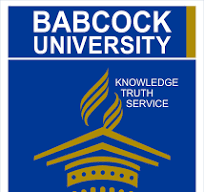Male Experiences of Spousal Abuse in Ama Ata Aidoo’s Changes
Keywords:
Male experiences, Psychoanalysis, Spousal abuseAbstract
This paper explores the portrayal of male spousal abuse in Ama Ata Aidoo’s Changes. This endeavor arises from the inadequacy in society and the academic community not actively recognising spousal abuse as a male issue as much as it is a female issue. Likewise, within literary discourse, more focus is paid towards the portrayal and critique of female victims with lesser attention paid to male victims. These shortfalls have created stereotypes that impact upon the way issues concerning spousal abuse are handled in that there is tendency to discriminate against male victims. These stereotypes and discrimination cause male victims to suffer in silence. In the light of this, this paper examines the portrayal of spousal abuse from a male character’s (Oko Sekyi) viewpoint in the selected text. Specifically, the paper identifies forms of spousal abused portrayed in the text and using psychoanalysis as theoretical guide, the paper investigates the effects of the identified forms of abuse on the selected character, as well as his reactions to these effects. The paper reveals the conflict that arises between Oko’s experiences of spousal abuse and trying to conform to societal imposed roles for a man. Also, among others, the study identifies emotional abuse and verbal abuse as forms of abuse perpetrated by Esi Sekyi to exert control and power over her first husband (Oko). Issues such as low self-worth, frustration and bitterness arise as effects of Oko’s spousal abuse experiences, while aggression and violence are revealed as the victim’s reaction to experiences of spousal abuse. The paper concludes that females are capable of being perpetrators of abuse against their husbands as portrayed it in the text. It also submits that revealed feelings and thoughts of the male victim in the text show that just as in female victims, spousal abuse has negative implications on male victims. As such, prevailing attitudes and endeavours that attempt to deify female experiences over male experiences may be somewhat prejudiced. Spousal abuse should therefore be regarded as a human issue and more focus should be given to the portrayal and critique of male experiences in literature and scholarship in general.
Downloads
Published
How to Cite
Issue
Section
License
Copyright (c) 2024 Beyond Babel: BU Journal of Language, Literature, and Humanities

This work is licensed under a Creative Commons Attribution 4.0 International License.



